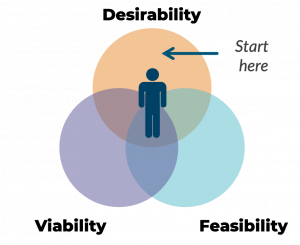
- Access to Care
- Rural Health
Social Impact Program
The North Carolina Healthcare Foundation (NCHF) is facilitating partnerships to improve health outcomes through community-led, systems-level solutions and sustainable collaborative investments.
- Program Overview
- Robeson County Social Impact Project
- Robeson County Social Impact Mini Grants
NCHF recognizes that a foundational requirement of informing best practices for improving care delivery is supporting community-based innovation, developing leading-edge programming, and bringing together diverse voices and perspectives to drive lasting change. Within the Rural Health Innovation sector, NCHF has as an organizational priority to create stable rural health services that meet the changing needs of North Carolina’s rural communities while demonstrating value to the overall system of care. Through the work of our Social Impact Program, NCHF aims to be a convener in advocating for future sustainable investments in community-led, systems-level solutions to disparate health outcomes by:
NCHF aims to be a convener in advocating for future sustainable investments in community-led, systems-level solutions to disparate health outcomes by:
- Building a framework for facilitating hospital-community partnerships aimed to inform new models for collaborative investments to promote health.
- Empowering NC health systems to embrace upstream, groundwater approaches to leading systems-level change with their communities.
- Utilizing a human-centered approach to center the voice of the community in determining needs and aligning resources for value-based approaches to community investment.
- Understanding and transforming social systems that drive health outcomes.
Through funding from Kate B. Reynolds Charitable Trust, North Carolina Healthcare Foundation is developing a framework to foster partnerships between anchor institutions and communities to collaborate on investment models that enhance health outcomes.
NCHF has elected Robeson County to launch this project, focusing on addressing the root causes of transportation challenges, a major obstacle to better health. NCHF recognizes that healthcare and community leaders hold influence and capacity to support creative infrastructures to advance practice and policy change. Also, community members and those most impacted need to be involved in decision-making to effect lasting change.
While serving as a partner to Robeson County’s residents and local anchor intuitions, NCHF aims to advocate for future sustainable investments in community-led, systems-level solutions to disparate health outcomes through the following objectives:
- Offering proof of concept for community-system partnerships that can be replicated across other NC communities, shifting public and institutional perspective in the value of human-centered, collaborative approaches to healthcare.
- Provisioning mini-grants to pilot innovative interventions that address root causes of challenges around social determinants of health (i.e. transportation) and demonstrate approaches that are effective at improving outcomes.
- Utilizing insights, case studies, processes, and performance metrics for the social impact framework to develop a Social Impact Playbook that will be made available to other North Carolina health systems and communities pursuing a similar effort to address other social drivers impacting the health of communities.
One goal of this Social Impact project is to create a model that can be replicated in other NC communities and change perspectives on the value of human-centered, collaborative healthcare.
NCHF will drive this shift in thinking and change by providing mini-grants to pilot innovative, community-led interventions that explore upstream solutions to transportation as a social driver, ultimately aiming to improve community health outcomes.
Click here to learn more and apply to the Robeson County Social Impact Mini Grants.
NCHA Staff Contact


Trish Vandersea
Director of Performance Improvement and Population Health
